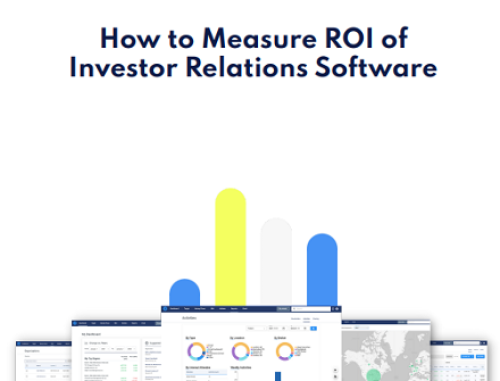An email arrives from one of your institutional investors. Attached is a screengrab of a social media post that makes harmful claims against your company. The investor wants to check with you whether there is any truth to the allegations.
This has happened on multiple occasions to Winnie Lei, senior director of investor relations at Suncity Group Holdings, the Hong Kong-listed integrated resort developer. ‘We have media and social monitoring in place to find out when something is trending, although we can’t catch 100 percent,’ she says. ‘Sometimes it’s investors that first see a rumor spreading in forums.’
Lei’s experience will sound familiar to other Chinese companies. Negative stories regularly circulate on social media platforms about businesses listed in Hong Kong and mainland China. The source could be anything: a short-seller’s report, foreign news article or anonymous blogger. Social media platforms like WeChat, China’s largest by user base, then provide fertile ground for rapid dissemination.
Companies on the receiving end of such a social media storm are at risk of short-term damage to their share price – and a long-term hit to their reputation. Given the ever-present threat, however, they are getting better at mounting rapid campaigns to take back control of the story.
In the spotlight
Lei spends a lot of time tracking rumors about her business. Suncity’s operations in the gambling industry tend to attract some negative publicity, she says. In addition, the company's chairman is a celebrity who frequently appears in news stories about his business and personal life.
‘We monitor the views and comments on a daily basis, but we just can’t respond to every single one,’ says Lei. ‘So we only respond to the ones that have most impacted the company.’
One incident where Suncity needed to respond occurred last July, she says. Rumors began circulating on social media that the company was unable to sustain itself financially.
The rumors were ‘spreading like wildfire on the internet, especially Chinese social media app WeChat,’ recalls Lei. In response, the marketing team joined forces with the investor relations team and filmed a video of the chairman, in which he clarified the online claims as unsubstantiated and offered proof that the company still had plenty of liquidity. ‘He even showed a screenshot of bank statements in the video,’ Lei says.
The company released the video and clarifications across its various communications channels, including its WeChat account. It wanted the content to be easily shareable on social media because that’s where the rumors had started, explains Lei.
The role of short-sellers
While negative news can come from a variety of sources, one of the most serious situations is when claims are made by a short-seller. Some of these firms have a significant following among the investment community and their allegations can cause share prices to tumble within minutes of the publication of a new report.
Over the last decade, several short-sellers have targeted Chinese companies listed in the US. But issuers listed in Hong Kong are also targets. The number of public activist campaigns by short-sellers in the city was five in both 2019 and 2020, according to data from Activist Insight.
Social media plays a useful role in disseminating short-sellers’ research. Most make use of Twitter to share their concerns about companies, upload video clips and distribute news reports.
Each firm may also use a range of other social media platforms, from YouTube to Seeking Alpha and LinkedIn. Some publish information in multiple languages too. For example, Bucephalus Research, which describes itself as exposing ‘creative accounting at listed companies’, has a section of its website in traditional Chinese.
Companies that fail to respond quickly to a short-seller could see significant damage to their share price, explains Benny Liu, managing director and head of China at Citigate Dewe Rogerson, an advisory firm. In such situations, he says firms should make use of traditional communications channels as well as social media to protect their reputation, such as issuing a press release, arranging a call with investors and analysts, and engaging with media organizations.
Speed is key to the corporate response, adds Liu. ‘With social media, [news] spreads to people much faster than before, so IR has to do the same. You have to be really quick and transparent in terms of disclosing information and addressing the issues,’ he points out.
This is an extract of an article that was published in the Summer 2021 issue of IR Magazine. Click here to read the full article.










